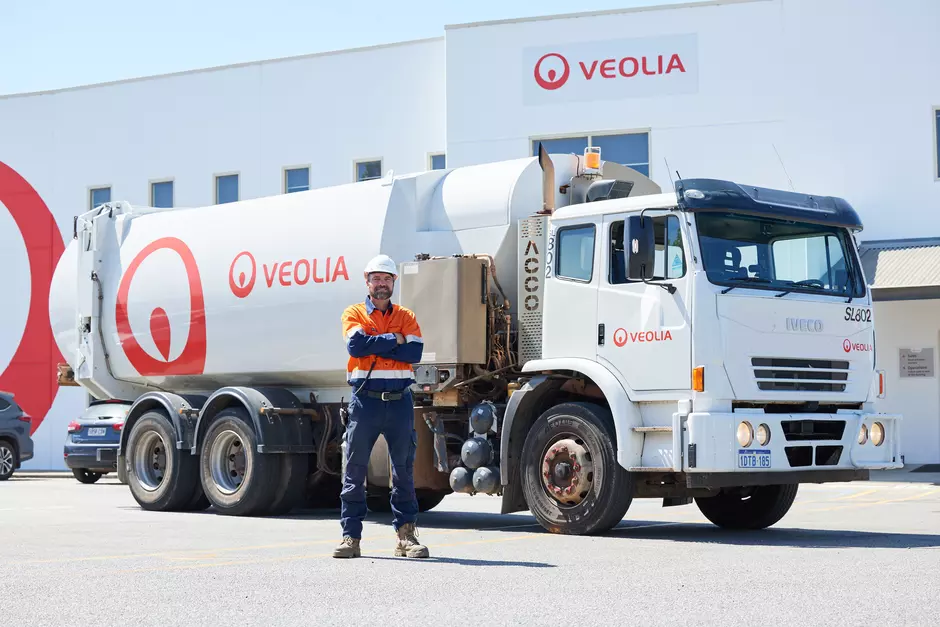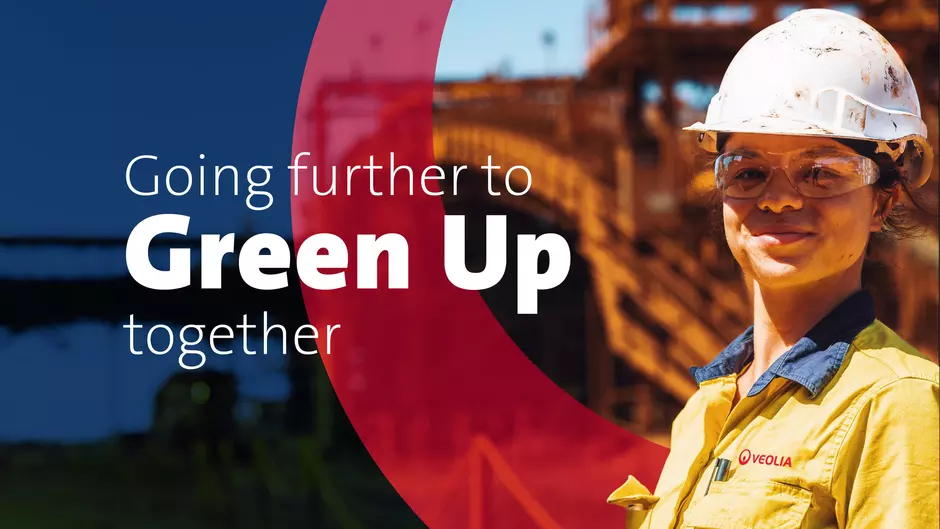Depackager is made from reused products. Veolia has taken the extra step in recycling and reuse by constructing the depackager from repurposed components and housing it in a repurposed shed.
Veolia has taken recycling to the next level for Woolworths through the use of a state-of-the-art depackaging facility that has the capacity to process up to 15,000 tonnes of packaged food every year.
Woolworths is already well-advanced on its recycling and reuse journey for food, but expired packaged food that wasn’t suitable for charities remained a challenge.
Veolia’s depackaging solution changed that, automatically stripping the packaging from the expired food and separating them. This enabled Woolworths to process the expired food and turn it into high quality compost and gave the packaging a new life as a recycled resource.
“Every time we help one of our clients, like Woolworths, divert and reuse more organic waste, we help reduce the amount of greenhouse gases generated by landfill and enable organic resources to be returned to the earth. It’s a win-win for everyone,” said Veolia’s General Manager Resource Recovery - Vic, Mr Mark Globan.
“Finding and developing sustainable solutions for business is so much a part of the bones of Veolia that even our Taylor Road Resource Recovery Precinct that houses the depackager is an example of reuse. The entire depackaging facility is made up of repurposed components taken from other Veolia sites and the shed that houses the facility already existed on site and was modified to accept the depackager. We believe in walking the talk where sustainability is concerned.”
The depackaging facility is the latest innovation Woolworths Group has brought to bear on its path to sustainability. The Group diverted 80% of food waste across its total operations from landfill in the last financial year, and Veolia’s depackaging facility will help save more food from landfill.
“When it comes to food we can’t sell, our first choice is always to give it to our charity partners to help feed people in need. Sometimes that’s not an option because the food is no longer edible - but that doesn’t mean it has to go to landfill,” said Paul Donaghy, Woolworths 360 Resource Recovery Manager.
“While we use a range of services to save inedible food from landfill, one of the biggest challenges is separating packaging from the food inside. This depackaging solution will help us continue to close the gap on food waste by ensuring packaged foods can be efficiently and effectively processed.”
The depackaging facility is just one of many technological innovations that Veolia makes available to its clients to increase recycling and reuse rates as Australia moves towards becoming a fully circular economy.
“One of the fundamental pillars of Veolia is the phrase ecological transformation, which describes those actions where we depollute, decarbonise and preserve the environment,” Mr Globan said.
“In the coming year, Australians will see this approach accelerated as our new GreenUp strategy comes online, boosting investment across the country that will see us provide a multitude of circular economy, energy and sustainable options for our customers. It’s the beginning of an innovation pipeline that we’re already calling the GreenUp revolution.”
For All Media Enquiries Please Click the Link Below
Skye McParland, Head of Communications and Public Relations





